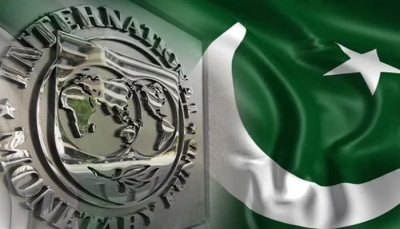Islamabad: Pakistan’s efforts to unlock access to the already agreed $ 6.5 billion loan package with IMF is in a quagmire after the cash-strapped country unveiled a subsidy and development-packed budget of Rs 14.46 trillion which experts say will do little to allay the concerns of the global lender.
The Pakistan government Friday unveiled a Rs 14.4 trillion budget for 2023-24 as it battled to fend off a looming default due to shrinking foreign reserves. The government claims to have shared the budget with the International Monetary Fund (IMF).
The budget needs to satisfy the IMF to secure the release of more bailout money for cash-strapped Pakistan.
Dawn reported from Washington that the budget will do little to allay the IMF’s concerns and makes it more difficult for Pakistan to complete the pending ninth and 10th reviews of the current bailout package.
Since 1958, Pakistan has signed 22 IMF programmes but failed to complete all, barring the 2013-16 facility, thanks to nearly 18 waivers from the global lender.
Islamabad signed the current 36-month $ 6 billion Extended Fund Facility in July 2019, which, on request of the then-finance minister, Miftah Ismail, was extended by the IMF by nine months to June 30, 2023, and its size increased to $ 6.5 billion.
Over the past almost four years, the programme has been derailed at least four times, including on two occasions during the tenure of the current coalition government, and the failure to complete it will further widen the trust deficit between the country and the financial world.
The paper reported that a Washington-based economist Uzair Younus shared this view which is backed by many in the US capital about how the budget impacts Pakistan’s chances of receiving the remaining two tranches from the IMF and of getting a new assistance package.
Even those in the IMF and the World Bank share these sentiments, although no official is willing to offer on-the-record comments because of the sensitivity of the issue, the paper reported.
“Economic stability is linked to political stability,” said an official when asked if the 2023-24 budget allays IMF’s concerns about the Pakistani economy.
“Forget about the two tranches. Focus on long-term reforms that can get you future (IMF) programmes,” said another. “They need to stop experimenting and (start working to) bring stability.”
The sources who spoke to Dawn explained that the current government completes its tenure in about 60 days and then there will be a new, interim government for 90 days. If a financial institution, such as the IMF, enters into a programme with Pakistan, it will require at least a year’s guarantee to implement the reforms the two sides agree on.
“How can a government that is there for 60 to 90 days give this guarantee?” one source asked.
That’s why, the sources explained, the IMF, or any other lending agency, would not enter into a long-term programme with Pakistan without a stable government.
The sources described the 53 per cent higher expenditure, as explained in Pakistan’s federal budget presented last week, as very large. “The deficit is rising, the economy in a state of shock,” one source said.
A source explained that to curb the balance-of-payments problems, Pakistan took some “draconian measures”, which are having a negative impact on the growth. “So, the question is, how will Pakistan achieve 3.5 per cent growth, as the budget suggests?”
A former IMF official claimed that the “current budget is eye-wash before elections. They will bring a mini-budget soon after the elections”.
Another source claimed that the government was not even certain about the next elections.
“If they are going to elections, how will they maintain budget discipline? How do we have guarantees that you will implement the pledges you make?” the source asked. “There is no development growth in this budget to get the economy back on track. There are no structural reforms that the IMF asked for.”
Another source explained that Pakistan’s current programme with the IMF expires June 30. So, the IMF board has less than 20 days to meet and decide how and when to release the remaining funds to Pakistan.
The member countries on the IMF board require the Fund’s staff to give them enough time to consult their capitals before agreeing or disagreeing with the proposals sent by the country seeking assistance.
According to the source, by the time this entire process was complete, Pakistan could hardly have a week or so to implement the reforms it suggested for getting the tranches. “How will Pakistan do that?” the source asked.
“The IMF rules require that the documents for consideration must be circulated among the board members two weeks before the meeting. How would this requirement be met?”
Pakistan, currently in the throes of a major political as well as economic crisis, is grappling with high external debt, a weak local currency and dwindling foreign exchange reserves.
The World Bank, its latest Global Economic Prospects report, has projected Pakistan’s economy to grow by two per cent in the next fiscal, lower than the 3.5 per cent target set by the country’s top economic body, saying the lasting effects of the August 2022 floods, along with policy uncertainty and limited foreign exchange resources have depressed activity in the country.
PTI
